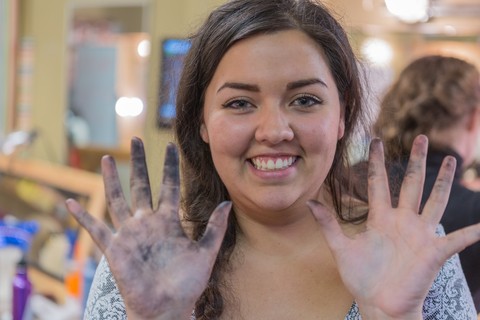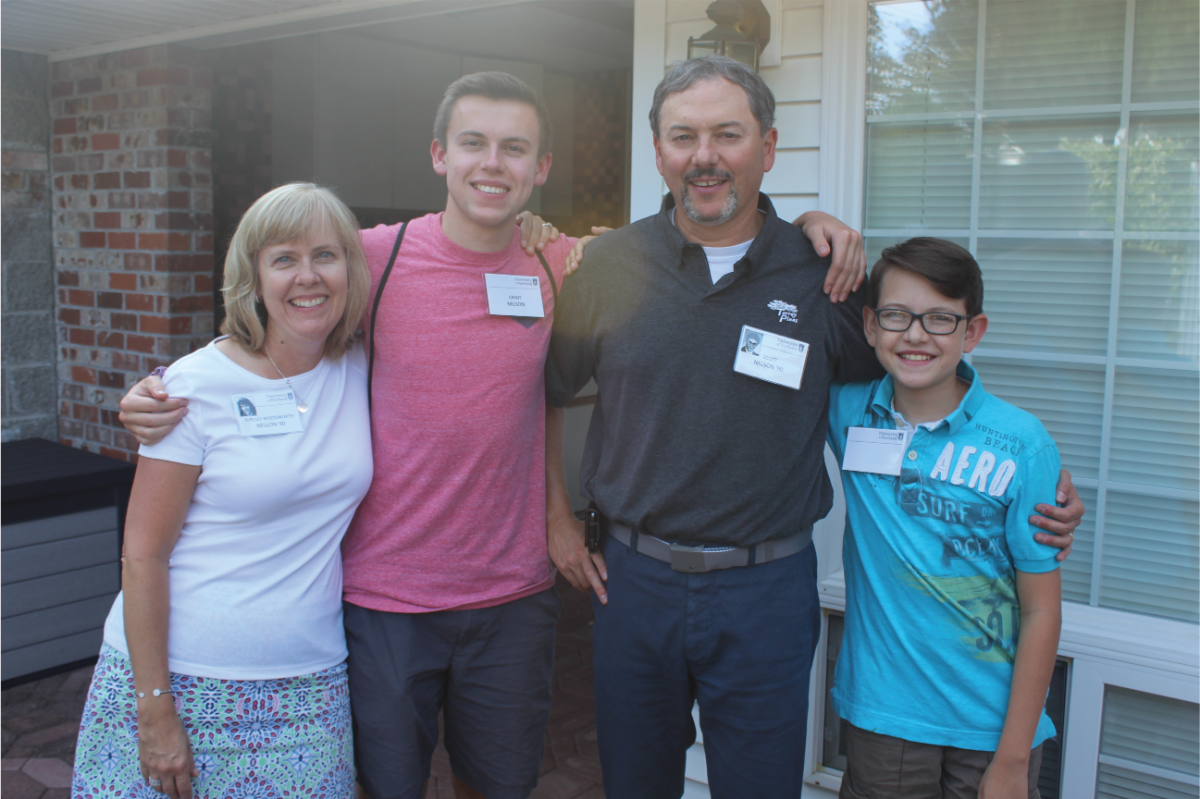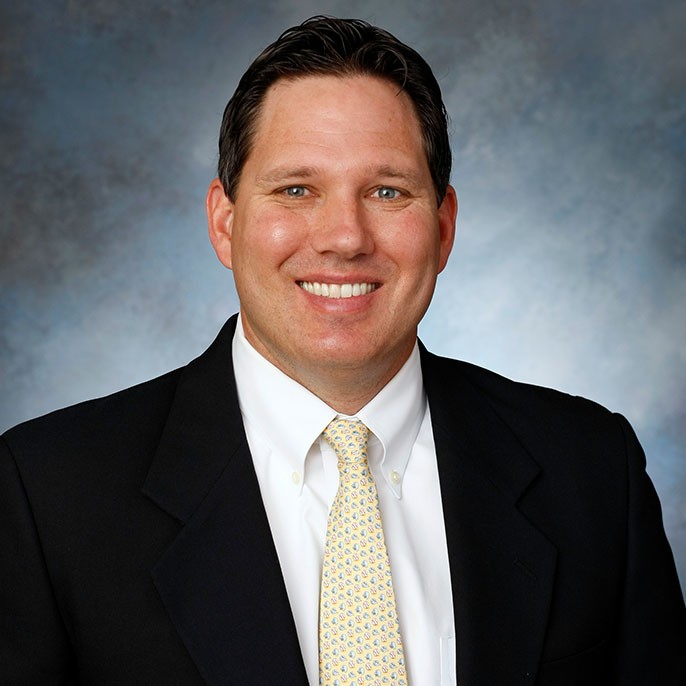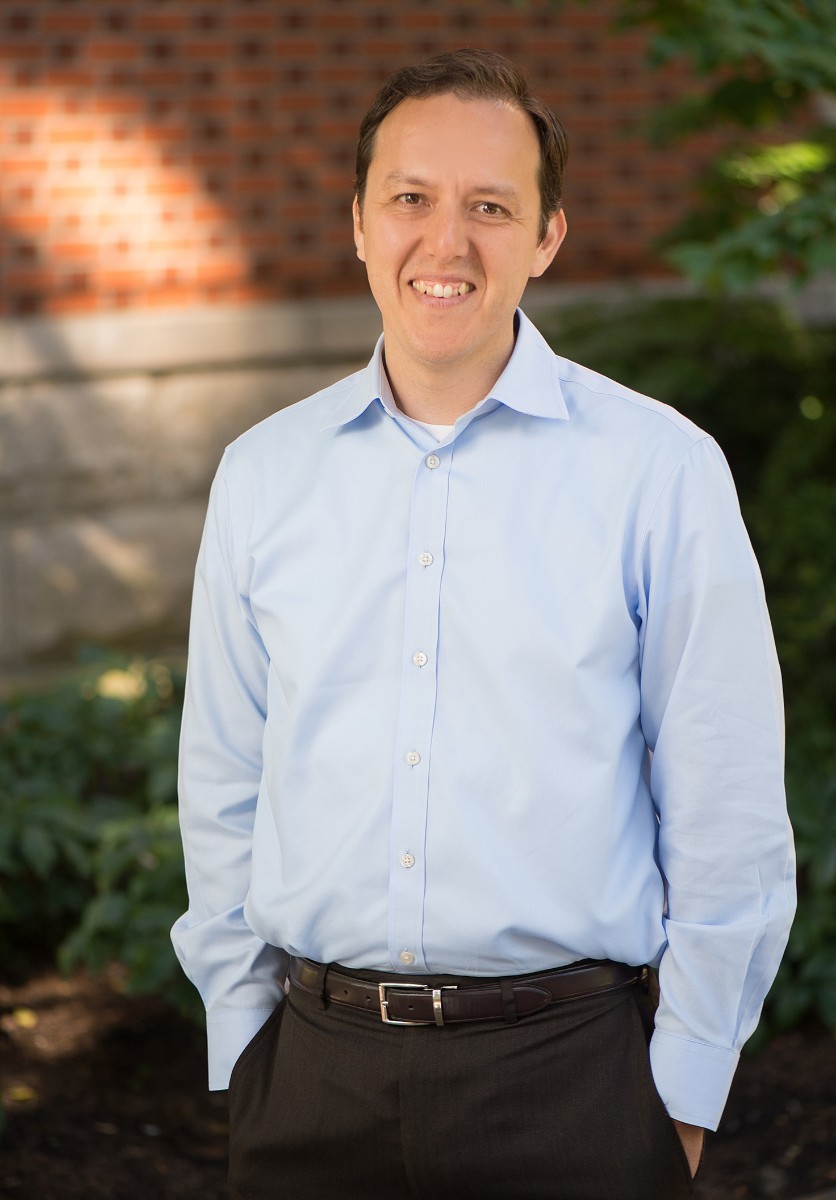Do you remember when your child was four years old? When I ask this question of current UP parents, I typically get reactions that include smiles, laughter, or perhaps a gasp or audible sound. Like you, I’m a parent—my wife and I have two young boys, Nikolas, who is 7, and Benjamin, who is 4. They love running around the UP campus and have an extreme fondness for the UP bell tower, the Shepard Center puzzles (and candy!), and the “big kids,” as they have taken to calling the students that I work with here on The Bluff.
Being a parent has been a great gift, but I also now understand and have much more respect for all parents after serving time, as I like to joke, “in the trenches.” Our family’s morning routine is a nice mixture of running around, verbal cues and reminders from my wife and me, and the race against the clock to make sure that everything is done on time so that no one is late. On the morning I wrote this, Benjamin decided that he wanted to brush his teeth, wash his face, and comb his hair—all on his own. We are going through a period where my wife and I will step in to help Benjamin, and his response is, “No, Mom (or Dad), I can do it myself!” I watched this morning as Benjamin combed his hair, and upon finishing that task, he looked like a 1980s heavy metal rock guitarist. He then asked to put on his own socks. As I watched, the designed heels of his socks ended up somewhere on his legs (not on his actual heels where they belonged). My internal dialog was perhaps something that you can relate to: “Do I fix this situation—knowing what I know, having lived life as an adult—or do I let my child ‘leave it messy’ and figure it out on his own?”

Even though this was a question I asked about Benjamin, the theme “Do I leave it messy?” is one that you can perhaps relate to, even as a parent of a college student. While your child may not have 1980s heavy metal hair, perhaps their decisions in college sometimes seem similar to these famous hairdos that went every which way, defied reason, and lacked a lot of purpose other than their own originality. As your student kicks off their spring semester, I encourage you to pause and think about how your child’s fall semester went. Don’t just think academically, but also socially and emotionally—the whole package. Were there moments where their lives and experiences here on The Bluff appeared to be “messy?”
My main thought to offer: regardless of how last semester went, good or bad, we can all learn from the experience. When I say “we,” I mean students, parents, families, and even faculty and staff. We are all partners in your child’s success. I love to share with students that as they are trying to transition through phases of the college experience, so too are their parents and families. Just as the student may not know the answer to a particular problem and might sometimes fall short, so do parents and families. When I point this out, I often get the same look of surprise on students’ faces, no matter the grade level. They are shocked that mom and dad do not have something figured out for a change, and are also trying to understand the college experience. Even if the student has had older siblings attend college, it doesn’t mean parents and families aren’t going through their own adjustments with this particular student here at UP.

So, do I leave Benjamin’s hair messy tomorrow morning and let him continue to wear socks with heels on the bridge of his feet? The answer is: I don’t know. Just like you, I am navigating this experience with my child. Maybe I will make a mistake, later realizing that I should have left things “messy” instead of trying to solve one of Benjamin’s problems for him as his parent. But this is a process. As parents, we’re all trying to learn, myself included. We love our children immensely, but we also want them to be independent problem-solvers as young adults. My advice: empower your kids to fix the “messy” problems themselves—and let them know you are there to help. Tomorrow morning, I’ll be waiting with a wet comb should Benjamin look in the mirror and decide the 80s rock star hairdo may not work. And if he sticks with the look, I’m okay with Benjamin learning what’s best for himself.
Ever want to brainstorm something about your child or have a concern? Give me a call. I’m here to help. And the next time you’re on campus, pop your head into the Shepard Center and introduce yourself. Perhaps I can buy you a cup of coffee and we can smile about the joys of parenting!
 Matt Daily is beginning his fourth year at the Shepard Academic Resource Center and currently serves as Assistant Director. His work focuses on meeting individually with all students to offer academic support, coordinating all efforts for students that are first generation college students, and offering programming for those who are undecided or undeclared with their major. He teaches classes in the School of Education and for the Dexheimer Leadership Fellows Program.
Matt Daily is beginning his fourth year at the Shepard Academic Resource Center and currently serves as Assistant Director. His work focuses on meeting individually with all students to offer academic support, coordinating all efforts for students that are first generation college students, and offering programming for those who are undecided or undeclared with their major. He teaches classes in the School of Education and for the Dexheimer Leadership Fellows Program.
Matt is originally from Los Gatos, California and earned his Bachelor of Arts in American Studies in 1998 from the University of Notre Dame. From 1998–2000, he was a member of Notre Dame’s Alliance for Catholic Education teacher preparation program, where he served as a Language Arts, Journalism, and Baseball instructor at Bishop Garriga Middle School in Corpus Christi, Texas. Upon the completion of ACE, he earned his Masters of Education from Notre Dame in 2000 and served as Associate Director of Educational Outreach at Notre Dame from 2003–2005. This experience included fostering academic connections between Notre Dame students and the K-8 Catholic School students of South Bend. He currently holds teaching licensure within the States of California, Oregon, and Indiana.
While in Corpus Christi, Matt also began coaching college baseball. His 14-year coaching journey included stops at the University of Portland, Georgetown University, Santa Clara University, and scouting with the San Diego Padres.
He and his wife, Jenny, have two sons, Nikolas and Benjamin. He enjoys spending time with his family, exercising, going to the beach, hiking, cooking, and reading.
Find out how to contact Matt here.


